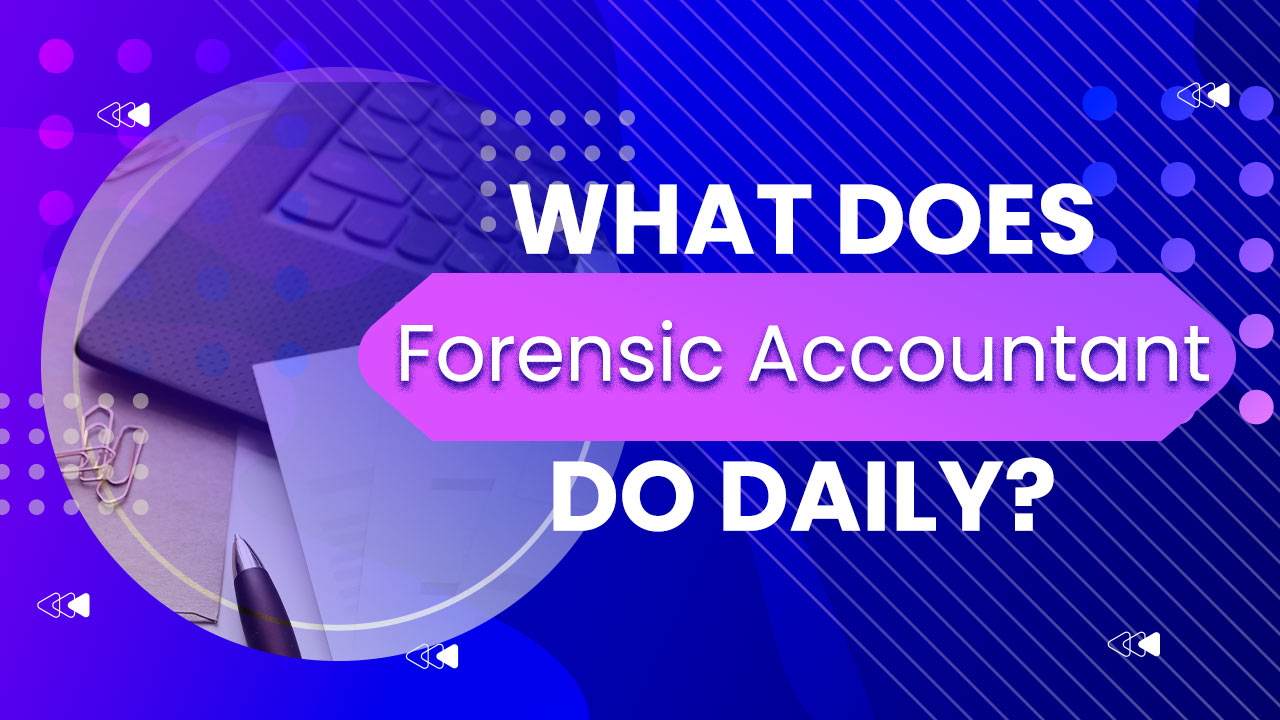Most people have heard of forensic accounting, but they are not sure what it entails. A forensic accountant is an accountant who uses their skills to investigate fraud and other financial crimes. They use their accounting knowledge to analyze financial statements and look for irregularities that could indicate criminal activity. So, what does a forensic accountant do daily? Read on to find out more.
What is the difference between an accountant and a forensic accountant?
The main difference between an accountant and a forensic accountant is that an accountant focuses on compliance with financial regulations while a forensic accountant focuses on investigating financial crimes. An accountant might prepare tax returns or financial statements while a forensic accountant might investigate fraud or money laundering. Both accountants and forensic accountants need to have strong math skills and be detail-oriented, but forensic accountants also need to have strong investigative skills.
What Crimes Do Forensic Accountants Investigate?
Forensic accountants often work on a variety of cases such as embezzlement, money laundering, cases of fraud, and corruption. Here are what those cases entail and how a forensic accountant tackles them.
Embezzlement
Embezzlement is the act of stealing or misusing company funds for personal gain. This can be done in several ways, such as creating false invoices, pocketing cash, or using company credit cards for personal expenses. Forensic accountants use their skills to uncover these types of activities by analyzing financial records for irregularities.
Fraud
Fraud is a type of white-collar crime that occurs when someone uses deception to gain an unfair or illegal advantage. There are many different types of fraud, but some common examples include investment fraud, insurance fraud, and tax fraud. Forensic accountants can help investigate financial fraud by tracing money flows and identifying suspicious activity.
Money Laundering
Money laundering is the process of concealing the origins of illegally obtained money. This is usually done by moving the money through a series of complex financial transactions to make it appear to be from a legitimate source. Forensic accountants can help uncover money laundering by tracking down unusual transactions and patterns of activity.
Corruption
Corruption is the misuse of power for personal gain. It can take many forms, such as bribery, kickbacks, and cronyism. Forensic accountants can help investigate corruption by looking for red flags such as lavish spending, unexplained wealth, and sweetheart deals.
What Does a Forensic Accountant Do Daily?
A forensic accountant’s day-to-day work varies depending on the cases they are working on. They might spend some days reviewing financial statements, and other days interviewing witnesses or reviewing documents. A typical day might involve:
- Analyzing financial statements for irregularities
- Searching for evidence of fraud or embezzlement
- Interviewing witnesses or suspects
- Testifying in court
- Working with law enforcement agencies
Forensic accounting consultants need to have strong analytical skills and be able to pay attention to detail. They must be able to find creative solutions to problems and think outside the box. They also need to be able to communicate complex information clearly and concisely.
Conclusions
Forensic accounting is a fascinating field that offers investigators a unique set of tools to uncover criminal activity. We hope this blog has given you more insight into this field and the ability to answer the question of what a forensic accountant does daily if anyone were to ask. If you’re interested in pursuing a career in forensic accounting, or if you simply want to learn more about this interesting field, be sure to check out our other blog posts on the topic!







